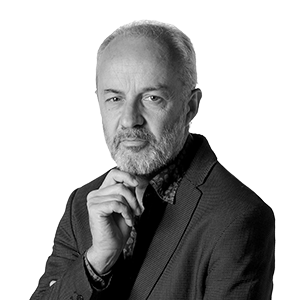Lenin in the 21st century


Can Lenin be vindicated in the 21st century without falling into sectarian anachronisms? Yes, it is possible. This is what historian and CUP politician Albert Botran does in his essay If Lenin raised his head, published by Ara Llibres (warning for the clueless: Ara Llibres has nothing to do with the newspaper ARA). I have known Albert Botran for years, when I commissioned a fortnightly section of history book reviews in the newspaper Today to his university professor Oriol Junqueras, who had become famous for his erudite interventions on TV3. Junqueras told me that he would do it together with a very solvent disciple, Albert Botran. I never imagined that both would make a political career. History lost two good professionals.
This book on Lenin shows a deep knowledge of the character. It is the critical dialogue of a historian and militant of the radical left with the Russian revolutionary of a century ago. Botran recovers the intellectual of action, the man capable of foreseeing the transition from industrial to financial capitalism and of denouncing racism with the Jews as scapegoats, the defender of the right to self-determination of peoples, but also the ideologist who did not know how to measure the dangers of abuse of power of the model he had built – party.
Botran does not renounce a certain Leninist heritage. In reality, and often without being fully aware of it, we are all a bit Marxist (we have internalized the social class struggle), a bit Christian (who doesn't want peace and love?), a bit Socratic (the idea of dignity and moral freedom is also part of our lives) and a bit capitalist (let them not touch our property, as long as it helps).
The young Lenin must also have felt these latent influences. The son of a middle-class civil servant, progressive but orderly, his passions as a teenager were music, chess and classical languages. He was a brilliant student in everything. How did he become a professional revolutionary? How did he end up exiled to Siberia? How could he lead the assault on power? And how did he go on to lead a state?
Lenin was born on April 22, 1870 (I was born on the same day almost a century later: April 22, 1966; the similarities end here). Vladimir had nervous disorders and was very intelligent and passionate. At the age of 16, within a few months, his father died suddenly and his brother, aged 21, was executed by hanging for trying to attack the Tsar: he was a militant in the violent populism that wanted to bring the revolution, not through the proletariat, but through the peasantry (in 1880). The tragic end of his brother left a lasting mark on him.
From then on, life took a turn for the worse. He became the brother of a terrorist. And he wanted to avenge his death by making the revolution possible, but through the Marxist modernity that came from Western Europe, not from Russian peasant populism. He not only asked himself To do (the title of his most famous book) in the face of the tyrannical and backward empire of the Tsars, but he did it. This ability to combine reflection and action is what Botran admires, although he finds it unsustainable to maintain the voluntarist and often sectarian idealism of adolescence. An obsessive Lenin kept him going. Just as Marx joked that he was not a Marxist, Leninism ended up distancing itself from a Lenin who died at the age of 53. And then Stalinism reduced it to criminal absurdity: no one murdered more communists than Stalin.
"Is it possible, today, to build a new internationalism that integrates the popular classes of the north and the south?" Botran asks himself in the face of the Trumpist panorama of a "capitalism that wants to escape any democratic control." In times of counterrevolution, and of emotions and communicative devices, Botran proposes the formula vintage Lenin: organize yourself well (the party), do not fall into the naive childishness of using your own impatience as a revolutionary argument (who does not remember the "We are in a hurry" of the Trial). And read and study a lot. "I honor Lenin as the man who sacrificed himself completely and devoted all his energy to the realization of social justice," wrote Einstein.
